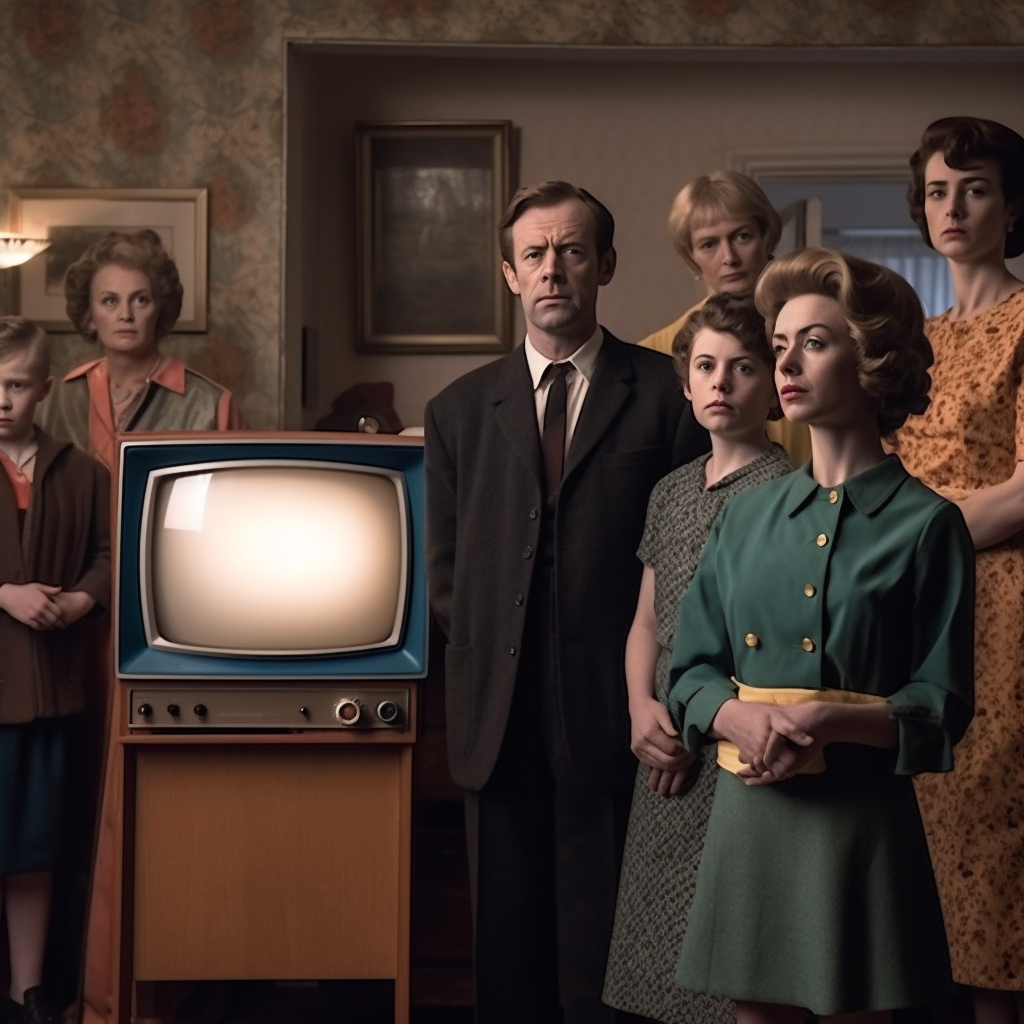How TV series reflect the past and present of their homelands

Our television screens are windows into the cultures that birthed them. They offer a glimpse into our collective values, fears, aspirations, and realities, mirroring societies and their transformations over time. By examining TV series from different countries like the US, Spain, and Korea, one can gain insight into both the past and present of these nations. This blog post will explore this phenomenon, using anecdotes from popular series such as "1883", "Aqui no hay quien viva", and "Squid Game".
Consider the American TV series, "1883". This western period drama, a prequel to "Yellowstone", delves into the struggles of pioneers journeying through the Great Plains towards a better future. The series paints an authentic image of America's past, reflecting the spirit of resilience and exploration that marked its history. The struggles of the Dutton family echo the real hardships faced by the pioneers of the 19th century, embodying the perseverance and grit that is often associated with the American Dream. Even in a modern context, these themes resonate with audiences, reminding us of our roots and our potential to overcome adversity.
Crossing the Atlantic, we find ourselves in the heart of Spain with "Aqui no hay quien viva". This sitcom, set in a fictional apartment building in Madrid, offers a hilarious yet poignant look into the lives of its quirky residents. The show is rife with social commentary, showcasing the diverse range of characters that make up Spanish society. The series highlights themes of family, community, and the trials and tribulations of everyday life, painting a picture of contemporary Spain that is as vibrant as it is relatable. The characters' idiosyncrasies, their interactions, and their warm yet chaotic coexistence capture the essence of Spain's societal dynamics, echoing the country's cultural norms and values.
Meanwhile, in South Korea, the explosive popularity of "Squid Game" has taken the world by storm. This dystopian thriller, which centers around a deadly competition, serves as a critique of the modern capitalist system. The desperation of the characters mirrors the societal pressure and economic disparity faced by many in present-day Korea. The stark, survival-of-the-fittest narrative is reflective of the cutthroat competition many people experience in their quest for success and stability, embodying the intense societal pressures prevalent in modern Korean culture.
Yet, as these series shed light on the realities of their respective societies, they also perpetuate certain stereotypes. The rugged, resilient cowboy of "1883" echoes the age-old American trope of the self-made man, while "Aqui no hay quien viva" leans into the stereotypical Spanish disposition towards close-knit communities and chaotic harmony. "Squid Game" too, with its brutal depiction of economic disparity, might risk reinforcing the stereotype of Korea as a high-pressure society.
While these series undoubtedly offer a lens into their countries' past and present, it is essential to remember that they represent only a slice of the narrative. Just as one series cannot encapsulate all of American, Spanish, or Korean society, a single perspective cannot define a country's past or its present. These series, with their blend of historical and contemporary themes, remind us that nations and cultures are complex, evolving entities. They reflect a certain truth but also remind us that perception is, indeed, a mirror of our own making.
TV series, like any cultural artifact, are powerful tools of storytelling. They can transport us back in time, shed light on our present, and even hint at possible futures. They are a reflection of our societies, a testament to our values, and a chronicle of our evolution. Whether it's the rugged plains of "1883", the bustling apartment block of "Aqui no hay quien viva", or the deadly games of "Squid Game", they invite us to explore the complexities of human nature and societal norms. These series give us a platform to discuss and dissect societal structures and stereotypes, fostering a deeper understanding of the cultures they represent.
In these depictions, we find echoes of our own lives, our struggles, and our aspirations. The familiarity of these stories, regardless of the country they originate from, points to a shared human experience. From the American West's vast landscapes to a Madrid apartment's bustling chaos, and the ominous dystopia of Korea, we find a common thread – resilience in the face of adversity, the importance of community, and the complex dance of societal pressures.
The power of these series lies not just in their reflection of the past and present, but also in their potential to influence the future. They challenge us to question the status quo, break down stereotypes, and shape a narrative that is inclusive and representative of the diversity in our societies. As consumers and critics, our interpretation and understanding of these series contribute to the dialogue around societal norms and values.
In conclusion, the TV series we watch are more than just a source of entertainment – they are cultural artifacts that hold a mirror to our societies, reflecting both our past and our present. They encapsulate the evolving narratives of their respective countries, inviting viewers to engage in a dialogue about societal norms, stereotypes, and the shared human experience. Whether it's through the lens of a cowboy in "1883", an apartment resident in "Aqui no hay quien viva", or a desperate contestant in "Squid Game", we are given a chance to explore and understand different cultures, while also examining our own.
(GPT4 20230511, first paragraph sent to Midjourney v5 for image)
Blog post about how TV series reflect both the past and present of countries they have been produced them like the US, Spain and Korea
Intersect lots of short anecdotes from "1883", "Aqui no hay quien viva" , "Squid Game" and other similar series to back the hypothesis
Dont use titles for sections, build argument on current stereotypes of each country mixing the examples from the series